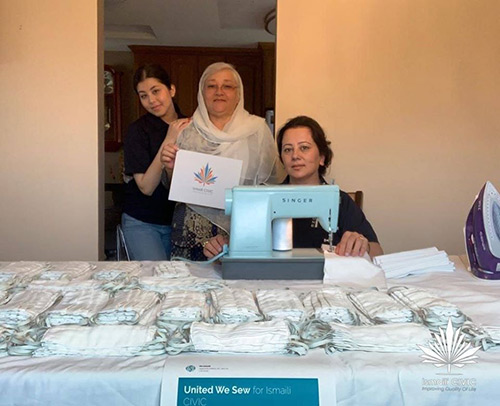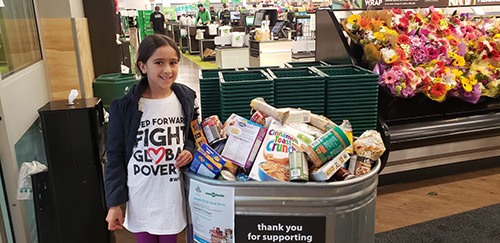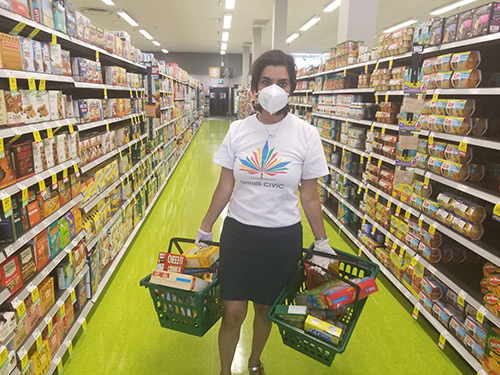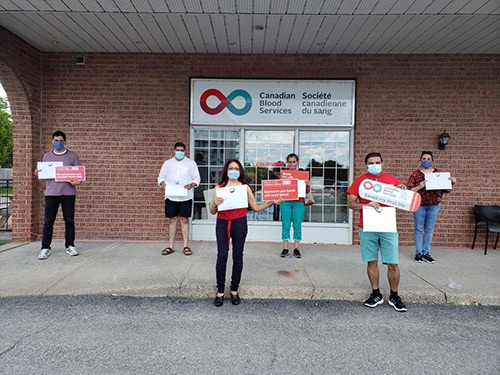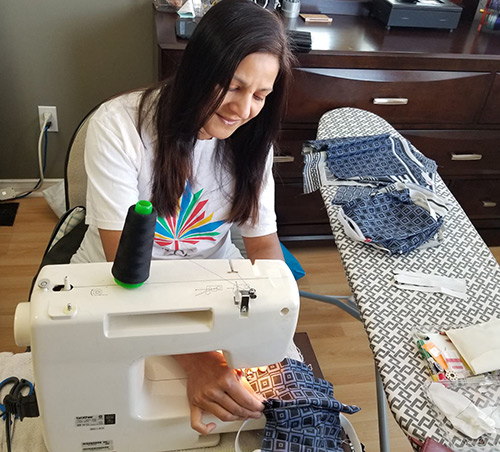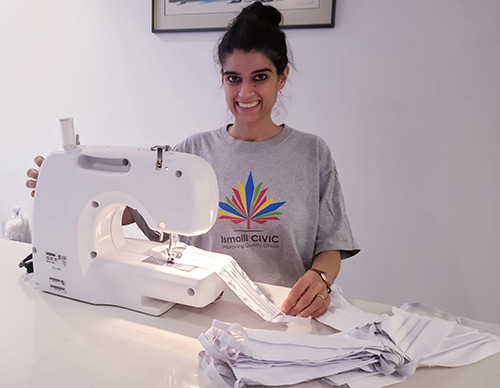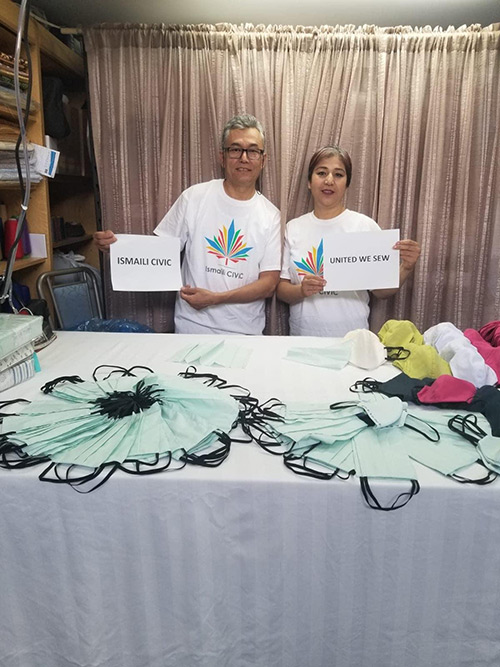The Ismaili Muslims belong to the Shia branch of Islam, one of two major branches of Islam, the Sunni being the other. His Highness Prince Karim Aga Khan is the forty-ninth direct descendant of the Prophet Muhammad (peace be upon him) and spiritual leader, or imam, to Shia Ismaili Muslims worldwide. The role of the imam is to interpret the faith and improve the quality of life for all people in societies in which the community resides. The Ismailis live in over twenty-five different countries with over 100,000 Ismailis having settled throughout Canada.
O Humankind! Indeed we created you male and female and we made you [diverse] peoples and tribes so that you may come to know one another. Indeed the noblest among you in the sight of Allah is the most pious. Indeed Allah is All-Knowing and All-Aware. (sura 49, Ayat 13)
From this verse in the Holy Qur’an stems a notion central to Islam—the conviction that we are all born “of a single soul” and that in all our diversity, we continue to share, in a most profound sense, a common humanity.
As a response to this ethos, the Aga Khan Development Network (AKDN) was established to realize the social conscience of Islam through institutional action. The AKDN aims to find sustainable solutions to improve the quality of life of the regions they serve, without regard to culture or faith. The AKDN operates in places as varied as Cairo, Kabul, Delhi, and Bamako, delivering essential services benefiting hundreds of millions of people. AKDN’s ability to make an impact in diverse regions is an example of the importance of bringing together faith and action in the context of a pluralistic world. At a 2003 ceremony inaugurating the AKDN’s restoration of Humayun’s Tomb Gardens, His Highness the Aga Khan asserted that “tolerance, openness and understanding towards other people’s cultures, values and faiths are now essential to the very survival of an interdependent world. Pluralism is no longer simply an asset or a prerequisite for development, it is essential for the functioning of civil society.”
In the Shia Ismaili Muslim tradition, voluntary service to others is an integral element of daily life, and a means by which an individual actualizes Islam’s ethics of inclusiveness and compassion. Ismaili CIVIC is an initiative of the global Ismaili Muslim community that aims to improve the quality of life of people in the communities in which they live. Originating in Canada, this program has enabled members of the Ismaili community to contribute over one million hours of service to causes and initiatives across Canada. Ismaili CIVIC volunteers have cleaned community parks, planted trees, served meals to the homeless, packed food hampers, and countless other service activities.
In particular, Ismaili CIVIC volunteers have mobilized to answer the call in times of crisis—like the current COVID-19 pandemic, which has left the community’s places of worship closed. This has left many in the community feeling isolated and looking for ways to connect with others toward a common purpose. Ismaili CIVIC volunteer opportunities have helped to fill this void by providing members of the community the opportunity to live their faith through service.
Ismaili CIVIC volunteers across Canada have come together to do the following:
- They have sewn over ten thousand cloth face masks for essential workers. For seniors in particular, making cloth face masks has provided them with an ability to contribute in a meaningful way, using skills that they’ve honed over years. When seventy-nine-year-old Daulat Janmohamed was asked why she volunteered to sew, she said, “I feel it’s our duty to give back to the community and this is a time of need. It’s a good pastime for me. Not having anywhere to go, sewing keeps my mind alert and puts my hands to work.”
- They have donated over twenty thousand pounds of food to local food banks across Canada.
We feed you for the sake of God Alone; we seek from you neither reward nor thanks. (sura 76, Ayat 8–9)
This verse from the Holy Qur’an and examples from the time of Prophet Muhammad (peace be upon him) demonstrate Ismaili Muslims’ long-standing tradition of working to address poverty and supporting those most vulnerable, regardless of their cultural or religious background.
- They have donated over 150 units of blood.
Whoever saves one (life)—it is as though he had saved the whole of humankind. (sura 5, Ayat 32)
This verse from the Holy Qur’an has inspired Ismaili CIVIC’s blood drive. As restrictions around surgeries are being lifted, the need for blood has risen. In response to this, Ismaili CIVIC volunteers volunteered to donate blood to save lives, in a way that has respected physical distances and the constraints on our health system.
- Over three hundred volunteers have committed to serving over fifty thousand hours during the course of the next year with the Kids Help Phone to support youth mental health.
The ethical framework that underpins the Ismaili community plays an integral role in guiding how we live these values in our daily lives. In a 2006 speech at the International Symposium at the University of Evora in Portugal, His Highness the Aga Khan said it best:
A deepening sense of spiritual commitment—and the ethical framework that goes with it—will be a central requirement if we are to find our way through the minefields and the quick sands of modern life. A strengthening of religious institutions should be a vital part of this process. To be sure, freedom of religion is a critical value in a pluralistic society. But if freedom of religion deteriorates into freedom from religion—then societies will find themselves lost in a bleak and unpromising landscape—with no compass, no roadmap, no sense of ultimate direction.
The Greek word ‘diakonia’ expresses the act of being called to serve. The Cardus Religious Freedom Institute’s Diakonia Project presents a series of eight different initiatives in which Canadians of faith serve their community. This highlights a core aspect of religious freedom: the freedom to live out one’s deepest held beliefs through concrete actions that serve the common good.
[This article has been written by a member of the faith community that supports this initiative. All views, opinions, and theological viewpoints are those of the author.]

